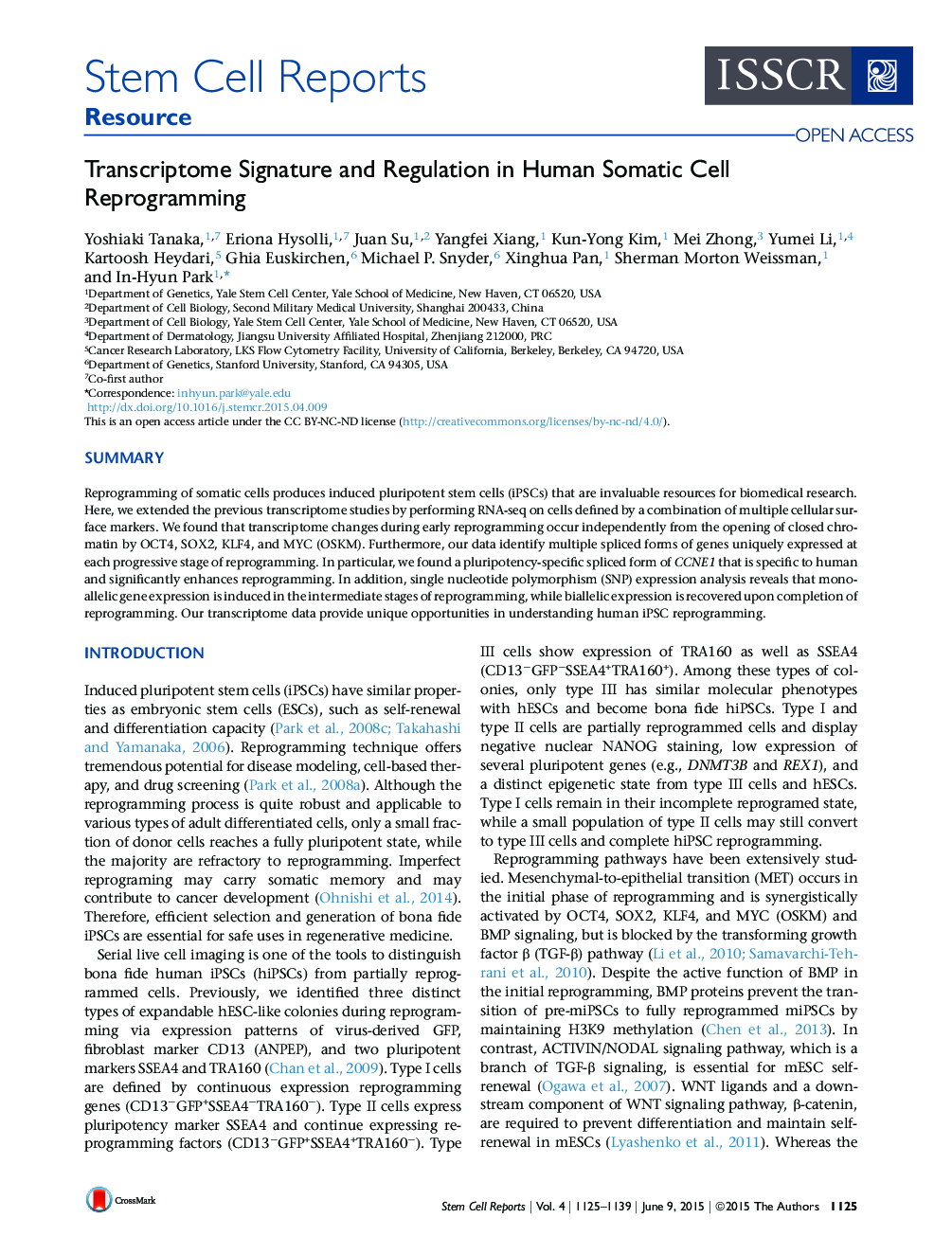| Article ID | Journal | Published Year | Pages | File Type |
|---|---|---|---|---|
| 2093551 | Stem Cell Reports | 2015 | 15 Pages |
•Initial transcriptional change relies on histone modifications in fibroblast•Allele-specific gene expression is manifested during reprogramming•A large number of spliced forms of genes are identified during reprogramming•Pluripotent-specific splicing of CCNE1 (pCCNE1) enhances reprogramming
SummaryReprogramming of somatic cells produces induced pluripotent stem cells (iPSCs) that are invaluable resources for biomedical research. Here, we extended the previous transcriptome studies by performing RNA-seq on cells defined by a combination of multiple cellular surface markers. We found that transcriptome changes during early reprogramming occur independently from the opening of closed chromatin by OCT4, SOX2, KLF4, and MYC (OSKM). Furthermore, our data identify multiple spliced forms of genes uniquely expressed at each progressive stage of reprogramming. In particular, we found a pluripotency-specific spliced form of CCNE1 that is specific to human and significantly enhances reprogramming. In addition, single nucleotide polymorphism (SNP) expression analysis reveals that monoallelic gene expression is induced in the intermediate stages of reprogramming, while biallelic expression is recovered upon completion of reprogramming. Our transcriptome data provide unique opportunities in understanding human iPSC reprogramming.
